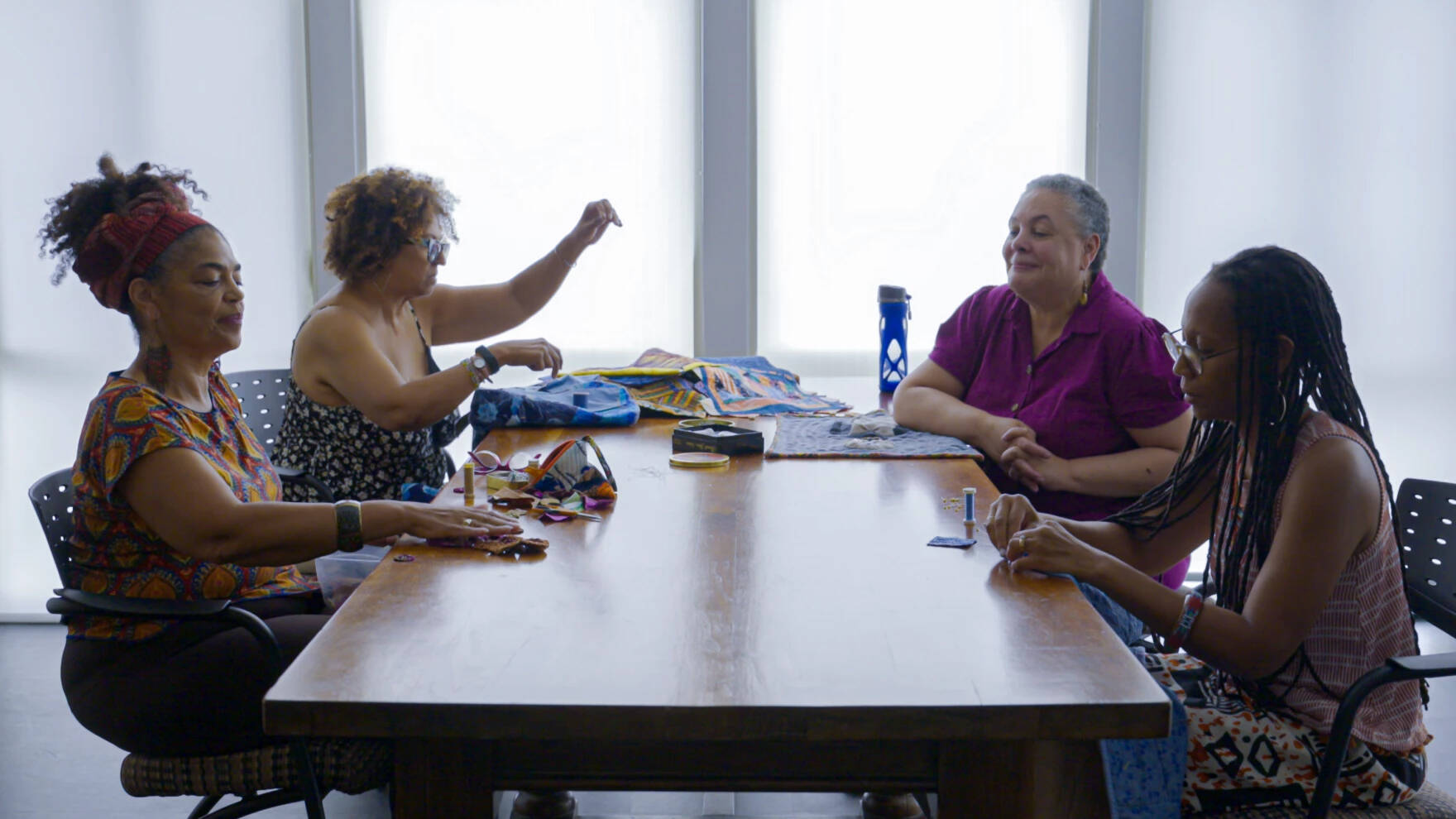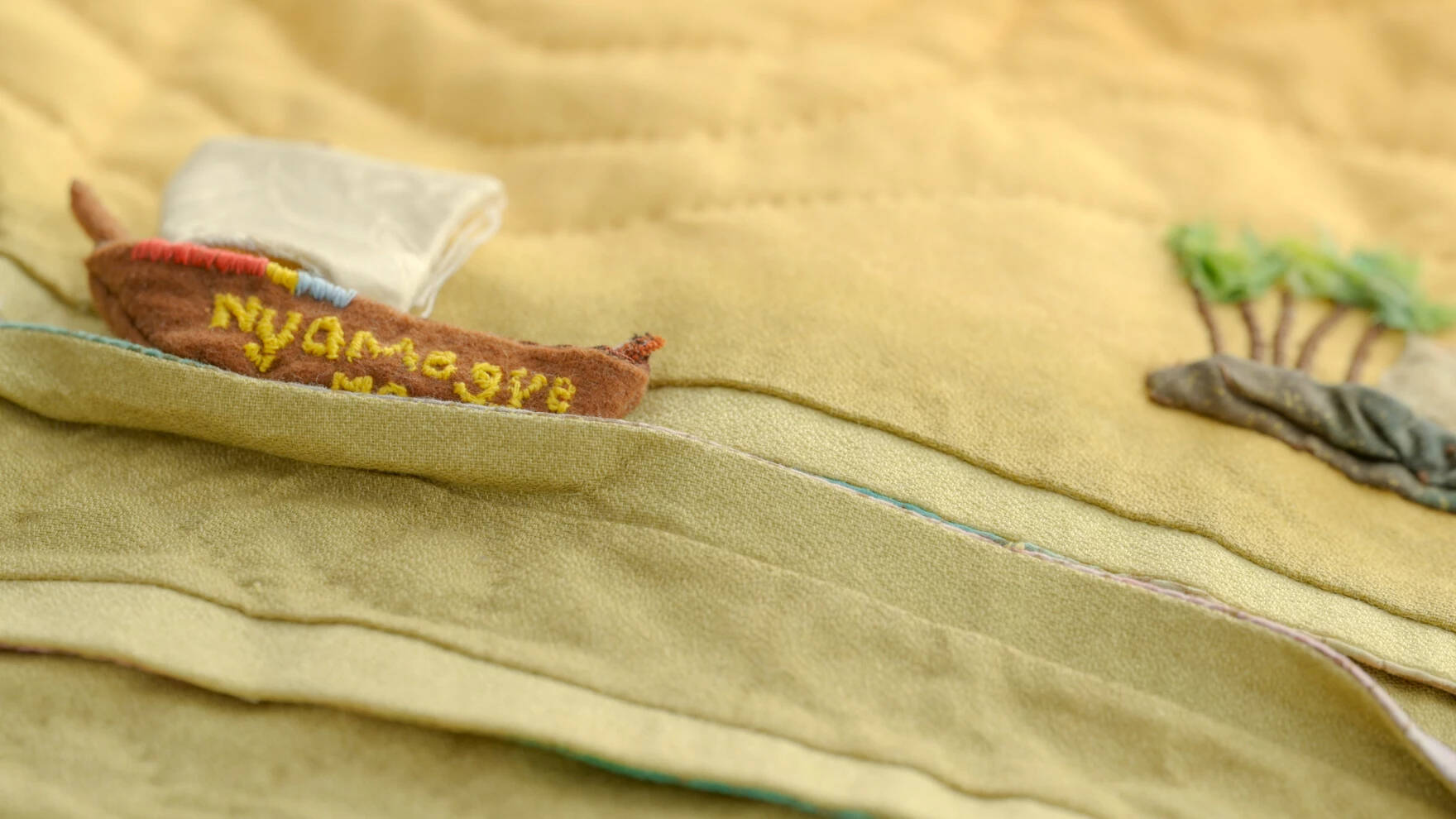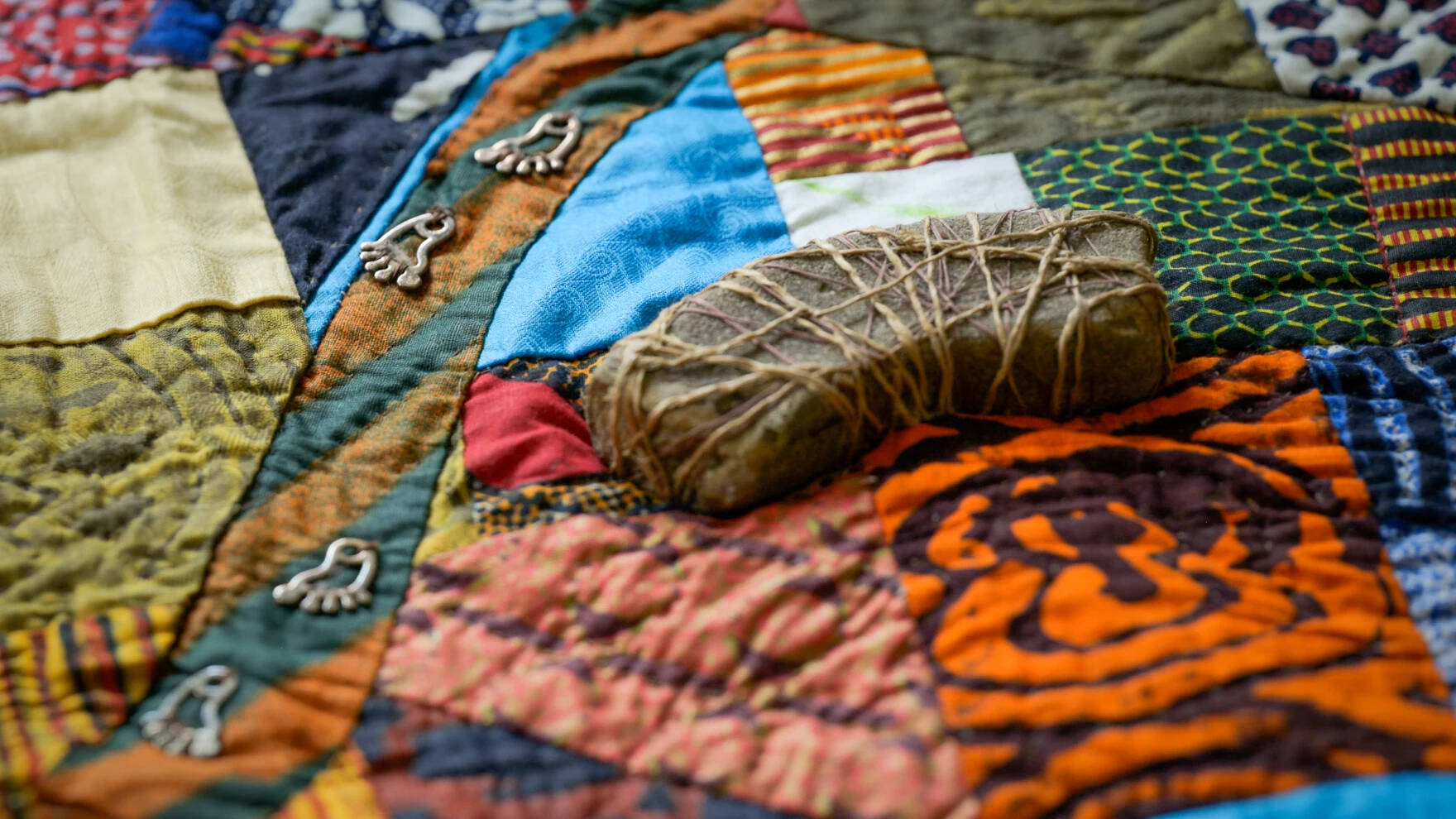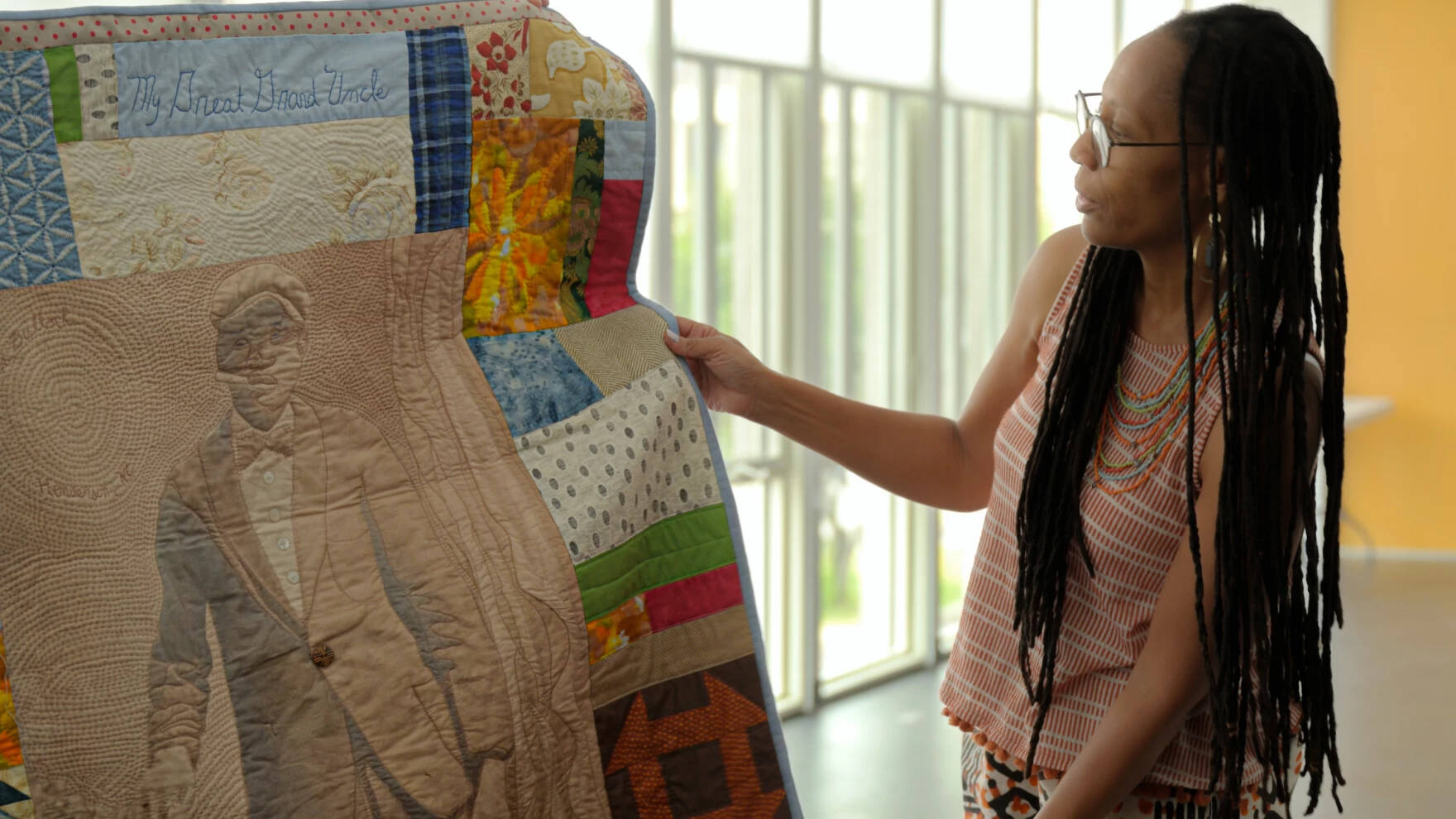Advertisement
For these quilters, sewing isn’t just a hobby. Their stitches honor their ancestors' stories

On a recent morning, four women sat around a wooden table at a YWCA in Worcester sewing. On the table were needles, thread, colorful fabric and a pile of quilts in all shapes and sizes.
They’re part of a quilting guild called Sisters in Stitches Joined by the Cloth, a group that’s predominantly women of color.
Co-founder Christle Rawlins-Jackson held up a quilt featuring gold, brown and turquoise fabric. Sewn into the border were seashells from West Africa. The piece was inspired by her experience living in Ghana. The quilt displays a view from one coastal slave fort to another — the last stop for captured Africans before they were forced onto ships headed to the United States.
For another quilt, she used photographs from her grandmother’s photo album.
Rawlins-Jackson said quilting was not a tradition in her family.
“But I had this idea that I wanted to tell my family genealogy through quilting,” she said.
Researching a family tree can provide a feeling of belonging and a sense of identity within a larger historical narrative.
But for Americans whose ancestors were enslaved, searching for their roots can be difficult, if not impossible. Records are notoriously hard to find. Enslaved people were not included by name in the U.S. Census. African Americans were featured by first and last name starting in 1870.
Their descendants often struggle to research family lineage.

The Sisters in Stitches say they are reclaiming their ancestral history in cloth. And by making quilts, they hope their stories – and their loved ones’ stories – will carry on.
One member of the quilting group has a rare understanding of her family’s history. Susi Ryan is a ninth-generation descendant of Venture Smith, the first Black man to leave a first-hand account of his capture from Africa and experience as an enslaved person in the U.S. He was enslaved in New England in the mid-1700s. He eventually bought his own freedom and the freedom of his wife and children. He also purchased land in Connecticut.
Ryan said quilting gives her a voice to tell his story.
“This is a piece that I dedicated to Venture Smith,” she said.
The quilt includes a scene featuring the first 26 acres that he had purchased in Stonington, Connecticut. A rock tied down with hemp is symbolic of Venture’s Rock, a large glacial erratic located in what is now the Barn Island Wildlife Management Area in Stonington. For many years, it was believed to mark the boundary of Venture Smith’s property. But in the past decade, historical researchers uncovered the original deeds for the property.
Ryan’s quilt shows a path underneath the rock.
“That’s my way of saying I’m following in his footsteps,” she said.

The Sisters in Stitches come from Connecticut, Massachusetts and New York and have quilted together for more than 20 years.
Donna Clark said their gatherings are a time for creative expression and friendship.
“We talk,” she said. “Sometimes we’ll inspire or give others ideas like ‘use this color or add this to the quilt.’
“They either take it or they don’t take it,” she said, laughing.
Cloth used in the quilts often comes from clothing passed down through generations. Ryan started incorporating fabric from her personal wardrobe.
“I’ve had a lot of medical issues this past year,” she said. “And I decided that I’m including clothing of my own. It’s just my way of … When I’m no longer here, my story will still continue.”
Kimberly Love Radcliffe has created quilts about her family in North Carolina. She held up a large one with a sepia-toned image of a dapper young man at the center. It’s her great uncle, James Love.

“This picture was taken during Jim Crow,” she said. “We don’t know what they did at that time, but they’re dressed fine. And I have old fabrics, some from that period of time. Hopefully my children will be interested and learn from the quilts.”
Quilting has helped her find community.
“I came to Connecticut as a Navy wife and it’s taken me forever to make friends,” she said. “But quilting, it’s a sense of therapy, a meditation, a prayer.”
Quilting is also a way to connect with the past, while wrestling with ongoing injustice today.
“When things happen, like George Floyd, you know we make quilts about that,” Love Radcliffe said “When loved ones pass away, we make quilts.
“We honor them with fabric that they wore.”
This story is a production of the New England News Collaborative. It was originally published by Connecticut Public Radio.
This segment aired on September 12, 2023. The audio for this segment is not available.